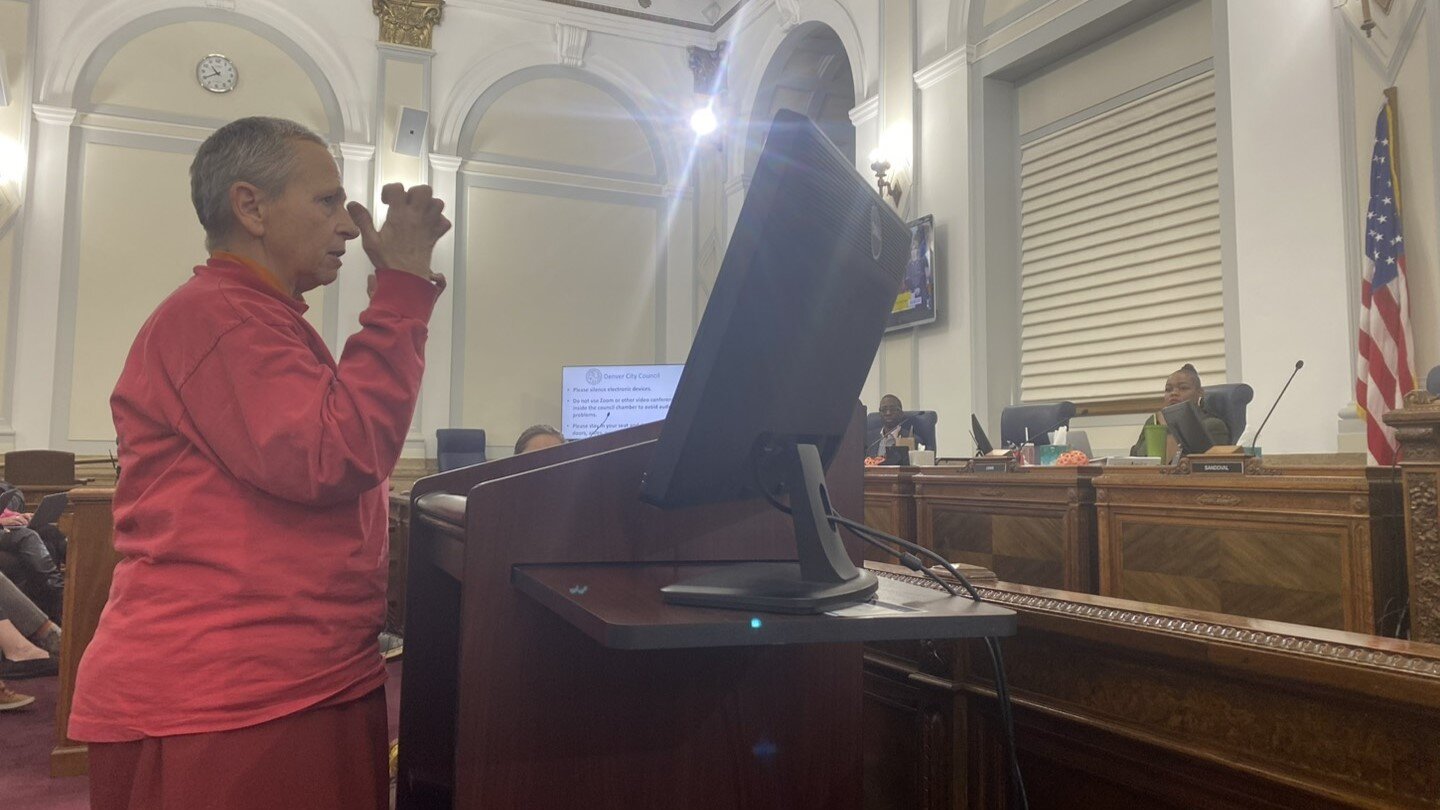Denver committee moves to ban unhoused sweeps during freezing temperatures

DENVER — Two resolutions supporting people experiencing homelessness are headed to Denver City Council after the city’s Budget and Policy Committee approved the resolutions at a Wednesday meeting.
The first resolution would ban Denver Police Department officers from sweeping people living outside if temperatures are below 32 degrees. The second would create more warming shelters and open those shelters when temperatures drop below freezing. Because winter nights in Denver often fall below the 32-degree threshold, city staff expect warming shelters would become 24/7 operations.
Denver’s current threshold for opening its warming shelters is 20 degrees.
“I’m blown away by how hard it is on these people who get swept,” said Kelsang Virya, an activist with Mutual Aid Monday, which serves free meals and camping supplies at Civic Center Park every Monday.
“I just can’t fathom a society that does this to their most vulnerable,” Virya added.
Many unhoused people testified to the committee, sharing experiences of numb fingers and frozen tears as they were forced to move their belongings during the coldest days of the year. Many said they were not eligible for hotel vouchers and that staying in shelters or warming centers felt worse than sleeping outside.
“A majority of houseless people, including myself, have some form of PTSD in some way or another from just everything that’s happened to us,” said Ana Miller, a houseless person and activist. “A lot of us can’t go to warming centers and night shelters because you’re packed in with hundreds of people and it can be a very scary place if you have health issues.”
Miller said transferring belongings back-and-forth from overnight shelters — which are primarily run by churches and nonprofits — to daytime warming centers run by the city creates added stress. Most shelters require their residents to leave in the early morning hours, so residents risk losing their belongings as they transition between shelters and warming centers. If they choose to stay outside during the day, they risk a citation or arrest.
“It’s such a pain to deal with the whole situation, get up, get kicked out at the coldest time of day, then truck all your belongings to whatever day shelter you're going to,” Miller said. “Most of the time, people would rather not go to warming centers because they don’t want to have to constantly travel.”

Kelsang Virya, an activist with Mutual Aid Monday, speaks before the Budget and Policy Committee Dec. 20, 2023.
Photo: Alison Berg, Rocky Mountain PBS
Most warming centers are also located near the downtown corridor, which Miller said makes things inaccessible for those who live in other parts of the city.
Audrey Griffin, an unhoused woman who called in to testify that police were sweeping her belongings, said being forced out of a tent during the coldest times of the year almost always makes her physically ill. Because she does not have money to spend on medication, Griffin said even a mild cold can take weeks or months to recover from.
“You almost always get sick once you’re swept during a cold day,” Griffin said. “You get sick and you stay sick.”
Terese Howard, lead organizer with advocacy group Housekeys Action Network, said in a survey the group did with 34 people experiencing homelessness, 70% of respondents reported being swept in freezing temperatures. Most also said they moved “across the bridge” or one block away.
“Each time, homeless people lose property,” Howard said. “And each time, nothing is solved.”
Sarah Rowan, an infectious disease doctor at Denver Health, said the hospital has seen an uptick in frostbite-related visits throughout the last five years. In 2023, the hospital treated 164 individuals for frostbite, and 115 of the patients were unhoused. In many cases, Rowan said patients with frostbite end up with complications such as wounds, chronic pain or amputation.
“Each winter, we see higher numbers than the last,” Rowen said. “The numbers speak for themselves.”
The resolutions were passed with a 4-3 vote. Committee members who supported the initiative said the city cannot afford to delay taking action to protect its most vulnerable residents.
“We are talking about winter now for individuals who are going to be harmed,” said council member Shontel Lewis, who represents District 8. “We’re sweeping them potentially into their graves or into harm's way.”
Committee members who voted “no” — Amanda Sawyer, Darrell Watson and Kevin Flynn — said they did so because the resolution language was too confusing. Mayor Mike Johnston has also announced he hopes to open more warming shelters, and the three “no” votes said they wanted clearer communication with Johnston’s office before moving forward.
Denver City Council meets every Monday. This resolution is not on their upcoming agenda yet.
Alison Berg is a reporter at Rocky Mountain PBS. Alisonberg@rmpbs.org.